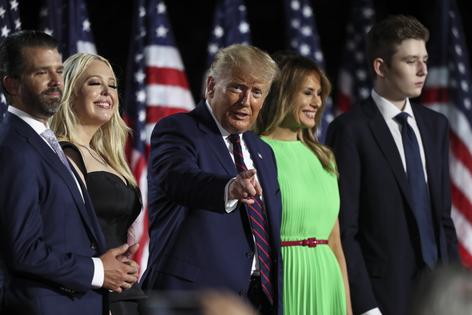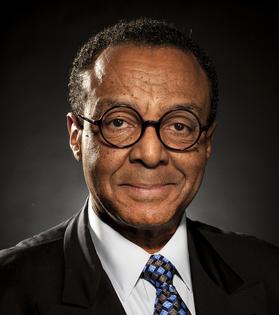Trump describes an America so scary, I wonder who’s president
For the longest time, President Donald Trump seemed all but unable to figure out who he was running against. But the renewed urban unrest, with fatalities in Kenosha following yet another police shooting of an unarmed Black man, appears to have clarified his thinking.
First he tried, in his usual name-calling style, to rebrand his Democratic challenger Joe Biden as a “Trojan horse for socialism.” That long-running Republican charge sounded hopelessly overused, though, after Biden beat avowed socialist Sen. Bernie Sanders of Vermont for the party’s nomination.
Then Team Trump doubled down on the notion that Biden was “hiding in his basement.” He was shying away from public appearances, they said, not because of the coronavirus pandemic — which rages on — but because he was too mentally challenged or speech-impaired to give a good speech.
Biden chilled that charge by delivering a sufficiently forceful acceptance speech at the Democratic National Convention to take the sting out of Trump’s “Sleepy Joe” epithet.
That left Team Trump to double down on a double message, saying on various occasions that Biden either wanted to “defund the police,” despite Biden’s frequent denials, or that he actually boosted mass incarceration by co-authoring the 1994 crime bill.
Well, which is it? Is he soft on crime or too tough? That debate goes on.
Elections are decided on more than actual facts, however, as our perennially fact-challenged president continued to show even in his acceptance speech Thursday.
With that in mind, Trump seized on the tragedy in Kenosha as a perfect example for an argument he has been pushing heavily this summer: That city crime supposedly poses a threat to the suburbs.
Trump’s team easily saw political opportunity in Wisconsin when the state’s Democratic Gov. Tony Evers declared a state of emergency after protests turned destructive following a police shooting of a Black man, Jacob Blake, who doctors said may never walk again.
Trump had been running consistently behind Biden in nationwide polling before the conventions, particularly with women who are among the swing voters to be found in suburbs. As unrest and looting broke out this summer in such unusual locations as Chicago’s Magnificent Mile shopping district and now in midsize Kenosha, Team Trump understandably sees an opportunity to frighten suburbanites into voting for their candidate.
But will this strategy work? Emotions often drive politics more than intellect or raw facts. As a sentiment frequently attributed to Maya Angelou goes, people may forget what you said, but they’ll never forget how you made them feel. As Richard Nixon and other self-avowed “law-and-order” politicians know, fear of crime makes people feel bad enough to push other issues aside and vote for whomever they think will make them feel safer.
But as the Kenosha story developed, it became more complicated — and tragic.
Alleged 17-year-old vigilante Kyle Rittenhouse from Antioch, Illinois, was charged with murdering two men and shooting a third in confrontations on a downtown Kenosha street.
Other video also raised questions as to why Rittenhouse was able to walk freely past police. He was later arrested at home. Many, including me, reasonably ask whether a Black youth carrying a rifle down the street would have been similarly waved through.
Photos posted online revealed that Rittenhouse was a strong supporter of a Blue Lives Matter police support group and sat in the front row of a Trump rally in Des Moines earlier this year.
For all Trump’s expressed concerns about “looting, arson, violence and lawlessness on American streets,” he and his team fell as silent about the young shooter as Trump had been on the shooting of Blake.
Biden, pushing back against the Trump narrative, accused the president of “pouring gasoline on the racial flames that are burning now.”
Indeed, candidates, including presidents, cannot be held responsible for the actions of all of their supporters. But they can be held responsible for what they say to either cool tensions or further inflame them.
In Trump’s case, the larger question is why, as the incumbent, he so easily talks about the chaos in the streets as if he still were a challenger, not the president. Who does he think has been in charge of the White House anyway?
=========
(E-mail Clarence Page at cpage@chicagotribune.com.)
(c) 2020 CLARENCE PAGE DISTRIBUTED BY TRIBUNE MEDIA SERVICES, INC.










